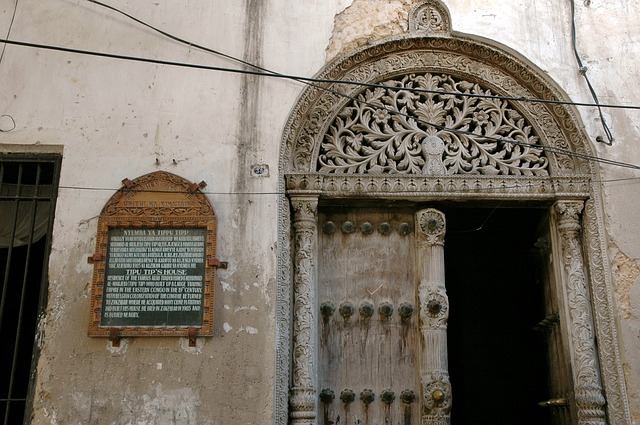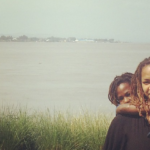Volun-touring Versus Volunteering in Zanzibar

I enter the room to find my students poring over a National Geographic magazine, deeply concentrating on a 1987 article about emperor penguins. They look up with smiles and questions.
“What is ecstatic?”
“To be very happy.”
“Okay, good. I am ecstatic to be in class today.”
I can’t remember ever saying this to any of my teachers. Though I was, admittedly, a huge nerd, and regularly set meetings with professors just to talk about books for fun, I was never ecstatic to be in class. But in Zanzibar, when my students greet me with this sentence, I know they aren’t just practicing a new word.
In my first three months of teaching English and writing to students in Zanzibar, I have come to learn a great deal about the culture of education here. Zanzibari students are the most eager, dedicated, and inquisitive students I have ever encountered. Learning English in Zanzibar is not just a compulsory subject. It is considered the key to success, an international language that opens doors far beyond Tanzanian borders. And unlike most American students (myself included) the Zanzibari students I’ve met are less focused on their future careers than they are on how they can use their education to serve their community. Several of the university students I teach are teachers themselves, running after-school primary classes for local street children.
But although my students are inspiring, my experience of teaching—and volunteering more generally—has been fraught with anxiety. Every day, I ask myself “Am I actually qualified to be doing this? Am I working hard enough? Who am I helping? What happens when I leave in nine months?” My questions are compounded every time I compare myself to the other volunteers in Zanzibar, who are mainly post-grads and young professionals from Europe, America and Australia who spend anywhere from two weeks to a full year working with non-profits.
Unlike most American students, the Zanzibari students I’ve met are less focused on their future careers than they are on how they can use their education to serve their community.
My experience is by no means unique. Of the friends who graduated from college with me, two are teaching English as Fulbright awardees, one is volunteering with the Peace Corps, and six more are participating in other service programs in the US and abroad, many of which have a teaching component. Not one of us majored in education. Teaching English abroad is one of the most compelling options for recent graduates who want to do something useful while traveling the world. Most positions don’t require a certificate or years of experience. You don’t have to know how to be a teacher, you just have to know how to speak and write in English. This flexibility has the capacity to provide a truly formative experience for the volunteer, yet it also raises questions about whom the work really serves.
Most of the established programs my friends participate in include at least a two-week training period. While this doesn’t provide all the preparation they need to become full-fledged teachers, it does help them walk into the classroom with the confidence, so that they can provide something to their students. In Zanzibar, I had no training. I found out at 9pm the night before that I would be teaching a two-hour English class in the morning. I frantically scribbled some notes on a piece of paper and walked into the room with my heart pounding, convinced that the students would immediately see me for what I really was: a fraud. Over three months of online research, more cohesive lesson plans, and experience with a variety of students, I’ve finally gained some confidence that my students aren’t wasting their time listening to me. But it’s been a long road to get to this point.
In Zanzibar, I had no training. I found out at 9pm the night before that I would be teaching a two-hour English class in the morning. I frantically scribbled some notes on a piece of paper and walked into the room with my heart pounding, convinced that the students would immediately see me for what I really was: a fraud.
The reason my program doesn’t have a training period is quite simply that most volunteers only come for two weeks. While there are those like me who create their own long-term international service experience, most people don’t have that time or motivation. They don’t volunteer. They volun-tour.
“Volun-touring” is a term used to describe short stints of service work that are combined with other sightseeing activities. While the volunteers spend their days helping out at nursery schools or teaching English classes, they spend their nights and weekends visiting the bars and beaches the island is so famed for. On one hand, volun-touring is an excellent way to gain a more authentic understanding of a culture and to actually make your vacation serve a concrete purpose. But on the other, it often means more to the volunteer than it does to the community. Two weeks in an English class doesn’t provide much substance to the students. I find myself reviewing topics in class today that we covered two months ago. It also tends to turn poverty into another sightseeing attraction. After booking a trip to see the red colobus monkeys in Jozani forest, a volunteer might plan a day trip to a rural village to see the mud houses that the poorest of Zanzibar’s population live in. How these ethical questions are resolved and what shape the volun-touring experience takes is ultimately up to the individual.
Observing my fellow volunteers, I’ve found that the biggest factor in the success or failure of a project is the motivation of the one leading it. The adult English class I’ve begun teaching started two weeks ago with another teacher. He had planned to stay for three months, long enough for his students to earn a certificate in English that might gain them employment opportunities in the tourism sector. His classroom was jam-packed, with at least thirty more students vying for a spot. Then he decided to “break up his trip” by spending a month in South Africa. As a tourist, this decision adds some variety to his experience. But as a teacher, this decision destroys whatever trust he had built up with his students, as well as any benefit they might have had from his class. Ultimately, he was more tourist than volunteer.
After booking a trip to see the red colobus monkeys in Jozani forest, a volunteer might plan a day trip to a rural village to see the mud houses that the poorest of Zanzibar’s population live in. How these ethical questions are resolved and what shape the volun-touring experience takes is ultimately up to the individual.
There are some volunteers who plan their trips with an awareness of their limitations. Three Irish girls came for two weeks to volunteer at a local nursery school. But instead of choosing their assignment on arrival, they spent a full year beforehand fundraising in their home communities. When they arrived in Zanzibar, they had over $6000, enough to replace the school’s leaky roof, paint the cement classrooms, install desks and chairs, and build new bathrooms. While in-country, they helped begin the construction process. When they left, they did so with the knowledge that their local partners would continue the project. Though they still enjoyed their time at the beach, they put their time to real use by prioritizing the impact they could have on the community.
Since arriving in Zanzibar three months ago, I have learned more than I could have imagined about myself as a volunteer, Zanzibar as a culture, and teaching as a form of service. But I’ve also tried to ensure that my students learn as much from me as I do from them. This is a balance I have to negotiate constantly. Not only do I have to ask myself questions laden with anxiety, but I also have to force myself to answer them honestly.








